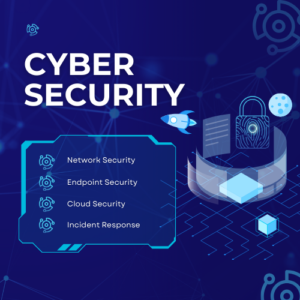Maintaining robust cybersecurity is crucial for businesses of all sizes in today’s digital age. Rapid technological advancements have brought numerous benefits, yet they have also introduced many security threats. As organizations increasingly rely on digital infrastructure, the need for comprehensive security strategies becomes more pressing. IT consultants are pivotal in fortifying business security, offering expert guidance and solutions tailored to unique organizational needs. This article delves into the critical business security issues that IT consultants can address and the value they bring to an organization’s cybersecurity framework.
1. Understanding the Evolving Threat Landscape
Cyber threats continue to evolve in complexity and sophistication, with malicious actors constantly devising new ways to breach security. IT consultants stay abreast of these developments, enabling them to effectively anticipate and counteract potential threats. By conducting thorough threat assessments, IT consultants can help businesses understand their vulnerabilities, prioritizing them based on potential impact and likelihood of exploitation. This proactive approach is instrumental in safeguarding against data breaches, ransomware attacks, and other cyber threats.
2. Implementing Strong Access Controls
Unauthorized access to sensitive business data can have devastating consequences. IT consultants assist organizations in establishing robust access control mechanisms, ensuring that only authorized personnel can access sensitive information. This involves the implementation of multi-factor authentication (MFA), role-based access controls (RBAC), and user provisioning systems. By fine-tuning access control strategies, IT consultants help prevent data leaks, fortifying the organization against external and internal threats.
3. Enhancing Network Security
Network security is a cornerstone of any organization’s cybersecurity strategy. IT consultants bring expertise in designing and deploying effective network security measures, including firewalls, intrusion detection systems (IDS), and virtual private networks (VPNs). These tools are essential in monitoring and controlling inbound and outbound network traffic, safeguarding the organization’s critical assets from unauthorized access and potential threats.
4. Data Protection and Privacy
Data breaches not only result in financial losses but can also damage an organization’s reputation. IT consultants assist businesses in implementing comprehensive data protection strategies, including encryption, data loss prevention (DLP) systems, and data backup solutions. Additionally, consultants guide organizations in complying with data protection regulations such as GDPR, CCPA, and HIPAA, ensuring that personal and sensitive data is handled with the utmost care.
5. Incident Response and Recovery Planning
Despite the best preventive measures, security incidents can still occur. IT consultants are crucial in developing and implementing robust incident response plans. These plans outline precise procedures for detecting, responding to, and recovering from security incidents, minimizing the impact on business operations. By conducting regular drills and simulations, IT consultants ensure the organization is prepared to respond swiftly and effectively when an incident arises.
6. Employee Training and Awareness
Human error is a leading cause of security breaches. IT consultants emphasize the importance of ongoing employee training and awareness programs to educate staff about cybersecurity best practices. Through workshops, seminars, and simulated phishing exercises, employees learn to recognize and respond to potential threats, fostering a culture of security awareness across the organization.
7. Regular Security Audits and Compliance Reviews
IT consultants conduct regular security audits to ensure an organization’s cybersecurity posture remains effective. This includes reviewing existing security measures, identifying areas for improvement, and ensuring compliance with relevant industry standards and regulations. By continuously assessing and refining security strategies, IT consultants help businesses stay ahead of emerging threats and maintain a strong security posture.
8. Integrating Security with Business Strategy
Security should not be an afterthought; it must be integrated into the organization’s overall business strategy. IT consultants work with business leaders to align security initiatives with strategic business objectives, ensuring security measures support business growth and innovation. This holistic approach considers the organization’s risk appetite, industry-specific threats, and long-term goals, resulting in a tailored security strategy that enhances resilience while enabling operational efficiency.
Conclusion
In an era where cyber threats are an ever-present concern, businesses must prioritize their cybersecurity efforts to protect their assets and maintain customer trust. IT consultants provide vital expertise, offering strategic insight and practical solutions to many security issues. By partnering with IT consultants, organizations can build a resilient cybersecurity framework that safeguards against current threats and adapts to future challenges. Investing in expert guidance today is a proactive step towards ensuring business continuity and success in the digital landscape.

